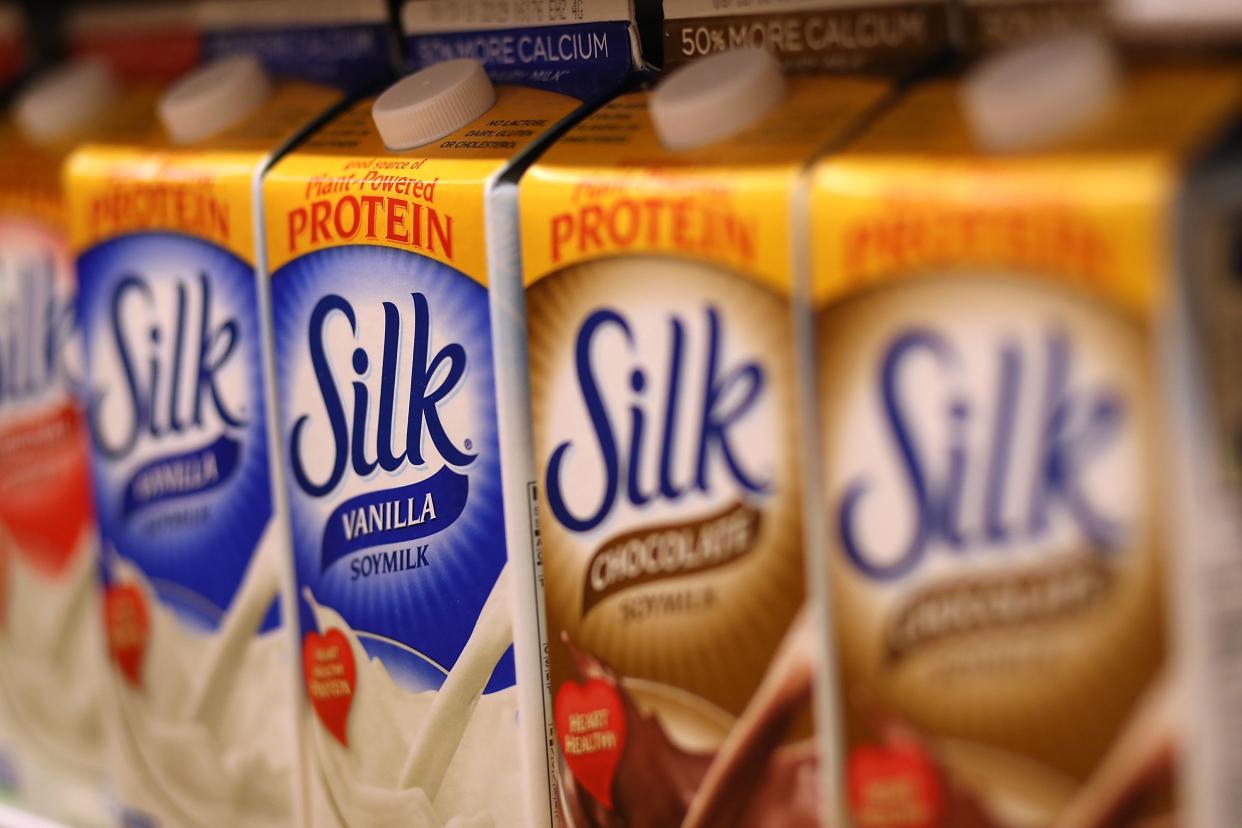Do we need the government to tell us that almond milk doesn't come from a cow?

Can you imagine starting your day with imitation milk in your coffee? Then making a sandwich on imitation bread for lunch and serving imitation noodles to your family for dinner?
If plaintiffs in a class action in the 9th Circuit Court of Appeals get their way, that will be our brave new world. Any variation from the government’s canon of standardized foods — milk must be from cows, bread and noodles must be made of wheat, and much, much more — will be deemed “imitation.”
Farewell, almond milk, rye bread and rice noodles.
Californians have a ringside seat to this battle, as disgruntled consumers go in for a rematch against Blue Diamond, the maker of Almond Breeze, after a stinging defeat in May of last year.
Even the FDA wants to loosen regulations
Painter v. Blue Diamond alleges that Blue Diamond is fooling consumers into buying more and more plant-based milk — because almond milk uses the word “milk” on its label after the word “almond” rather than “imitation.” Yes, really.
Of course, even the government knows this is ludicrous. Food and Drug Administration Commissioner Scott Gottlieb is on a mission to relax old rules about how many cherries must be in frozen cherry pie and the exact composition of French dressing. His reason: to remove what he calls “old-fashioned barriers to innovation.”
But that doesn’t stop the proponents of cow’s milk from advancing an anachronistic legal theory in federal court, deeming everything that is not a cow’s lacteal secretion is an “imitation.”
Are we so out of touch with food that censorship is required to remind us that almonds don’t lactate? Are product labels really tricking consumers into buying almond milk instead of cow’s milk?
Unsurprisingly, these arguments have been shut down by courts on multiple occasions.
More: Romaine roulette exposes farm-to-fork flaws
Thanksgiving without the sides: Lack of farm labor could make fruits, vegetables unaffordable
All the reasons to stop wasting food, starting with it makes climate change worse
When the Painter case was dismissed last year, the district court held that “no reasonable consumer could be misled by defendant’s unambiguous labeling or factually accurate nutrition statements.” Rather, “by using the term ‘almond milk,’ even the least sophisticated consumer would know instantly what type of product they are purchasing.”
In another case, the maker of Silk plant-based milks was sued over its allegedly deceptive labels. There, the court found that the claim of deception “stretches the bounds of credulity” and that under the same logic, “a reasonable consumer might also believe that veggie bacon contains pork, that flourless chocolate cake contains flour, or that e-books are made out of paper.”
Good thing, or else this newspaper might have had to refer to its online edition as imitation news.
Perhaps the reason we’re seeing these lawsuits is because cow’s milk is struggling to win back consumers’ affections as they increasingly switch to plant-based alternatives, which now command 13 percent of the market.
But just as newspapers now offer online content, so too have some dairy companies responded by making strategic moves into the sector, with dairy giant Danone enriching its portfolio through the acquisition of Silk plant-based milks and the century-old Elmhurst Dairy switching to entirely plant-based milk products.
Consumers are choosing plant-based milk
Other companies, however, continue to struggle. The rise in plant-based milks’ share of the market is a function both of increased sales for plant-based milks and a steady drop in cow’s milk consumption over recent decades.
But rather than woo customers back with better offerings, the proponents of cow’s milk have increasingly turned their attention to promoting draconian restrictions on the words that the competition can put on their labels.
From a dead piece of legislation with the unfortunate name “Defending Against Imitations and Replacements of Yogurt, Milk and Cheese to Promote Regular Intake of Dairy Everyday” Act (because that spells DAIRY PRIDE) to yet another lawsuit — this time against Miyoko’s Kitchen, the maker of vegan butter — the theory seems to be, if you can’t beat ‘em, censor ‘em.
And that brings us back to Blue Diamond, which now must defend against the insistence of plaintiffs that it should be forced to bear the term “imitation” on its label.
Plaintiffs complain about statements like this: “Made from real California almonds, Almond Breeze Original is a deliciously creamy alternative to dairy and soy milk. Almond Breeze Original is lactose free, soy free, calcium enriched, and contains only 60 calories per glass — that’s half the calories of 2 percent milk.”
To be clear, there is no suggestion these statements are false. Instead, the argument is that because it is different than cow’s milk, almond milk is somehow an imitation. By that logic, so are rye bread (not enough wheat!) and rice noodles (no wheat at all!).
We’re at a fork in the road. One direction leads to the featureless aisles of a supermarket where package after package bears the label “imitation” in an attempt to get people to buy what the government thinks is best. The other showcases a vibrant marketplace full of foods from around the world where we choose what we want based on what matters to us and our families.
Jessica Almy is director of policy for The Good Food Institute, a nonprofit that promotes alternatives to conventional meat, dairy and eggs. GFI filed an amicus brief in Painter v. Blue Diamond.
You can read diverse opinions from our Board of Contributors and other writers on the Opinion front page, on Twitter @usatodayopinion and in our daily Opinion newsletter. To respond to a column, submit a comment to letters@usatoday.com.
This article originally appeared on USA TODAY: Do we need the government to tell us that almond milk doesn't come from a cow?

